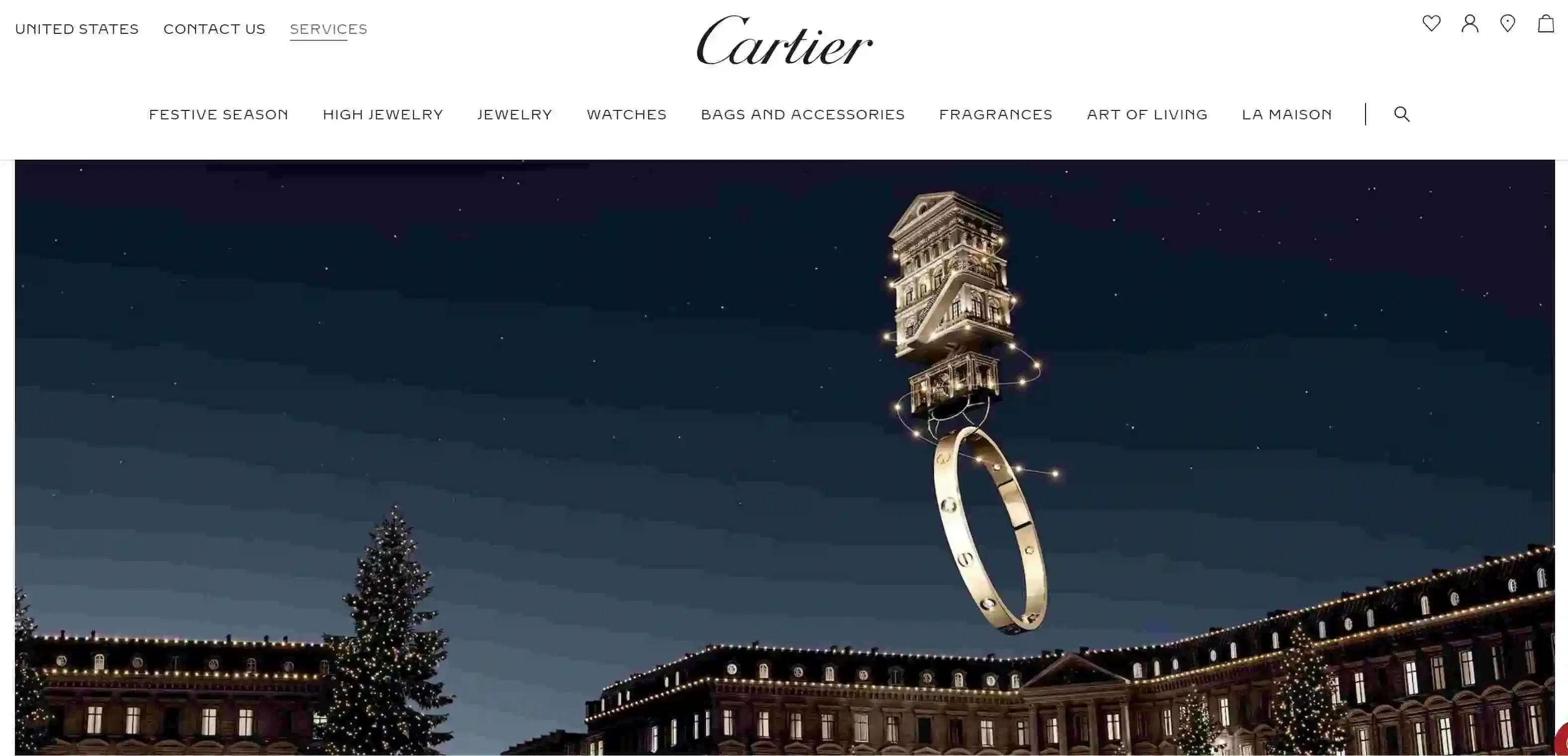Cartier, one of the most renowned names in the world of luxury jewelry and watches, was established in 1847 in Paris, France, by Louis-Francois Cartier. Initially, the company concentrated on the production of fine jewelry and timepieces. Alfred Cartier, the son of Louis-Francois, took over the firm in 1874.
Expansion and Royal Patronage
Under Alfred's direction, Cartier acquired a reputation for crafting exquisite jewelry. The brand's reputation grew swiftly, attracting a clientele of affluent individuals, including European royals. In 1904, King Edward VII of England called Cartier "the jeweler of kings and the king of jewelers."
The brand's success in Europe led to its global expansion. Cartier opened boutiques in London, New York, and other key cities, establishing itself as an international luxury brand.
Art Deco Era
During the 1920s and 1930s, Cartier played a pivotal role in the Art Deco movement by producing jewelry and timepieces with geometric shapes, vivid colors, and daring designs. During this period, she cemented Cartier's reputation as a dominant force in the jewelry and watchmaking industries.
After World War II, Cartier continued innovating by introducing new designs and materials. The brand's dedication to quality and craftsmanship remained strong.
Changes in Ownership
Throughout the years, Cartier's ownership shifted, with different branches of the Cartier family assuming control of distinct business divisions. 1964, Cartier Paris and the New York branch amalgamated to form a single entity.
Updating into a Luxury Brand
Cartier's legacy has dramatically impacted the luxury jewelry and watch industries. Due to its commitment to quality, enduring design, and innovation has become a symbol of prestige and elegance.
Today, Cartier is a highly regarded and coveted brand renowned for its iconic designs, such as the Love Bracelet, Panthère de Cartier, and Ballon Bleu watch, as well as its commitment to sustainability and the ethical procurement of materials. In the twenty-first century, it continues to captivate the affections of connoisseurs and collectors worldwide, carrying its legacy of timeless elegance forward.
Key Facts about Cartier
- Founding: Established in 1847 by Louis-François Cartier.
- Ownership: Family-controlled until 1964; now a Richemont Group subsidiary.
- Global Presence: Operates 200+ stores in 125 countries, headquartered in Paris.
- Prestige: Forbes 56th Most Valuable Brand in 2020.
- Royalty Connection: Known for sales to royalty and prestigious royal warrants.
- Iconic Products: Santos and Tank watches were introduced in 1904 and 1919.
- Expansion: Branches in London, New York, and Saint Petersburg.
- Leadership: Laurent E. Feniou is the current managing director.
- Environmental Focus: Received "Upper Midfield" environmental rating.
- Celebrity Patrons: Grace Kelly, Liz Taylor, Duchess of Cambridge.
- Film Influence: Featured in Wall Street; collaborated with Lincoln on car editions.
- Literature: Notable books include "Cartier Panthère" and "The Cartiers."


 Cartier is well known for its
exquisite craftsmanship. Each item of jewelry made by the brand is expertly handmade
by artisans who pay close attention to every last detail. Every stage of the
production process, from the placement of
Cartier is well known for its
exquisite craftsmanship. Each item of jewelry made by the brand is expertly handmade
by artisans who pay close attention to every last detail. Every stage of the
production process, from the placement of 